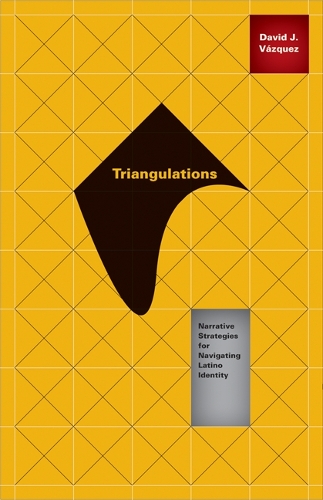
Triangulations: Narrative Strategies for Navigating Latino Identity
(Paperback)
Publishing Details
Triangulations: Narrative Strategies for Navigating Latino Identity
By (Author) David J. Vzquez
University of Minnesota Press
University of Minnesota Press
9th November 2011
United States
Classifications
General
Non Fiction
Social and cultural history
Ethnic studies / Ethnicity
810.9868073
Physical Properties
Paperback
248
Width 140mm, Height 216mm, Spine 15mm
Description
Just as mariners use triangulation, mapping an imaginary triangle between two known positions and an unknown location, so, David J. Vzquez contends, Latino authors in late twentieth-century America employ the coordinates of familiar ideas of self to find their way to new, complex identities. Through this metaphor, Vzquez reveals how Latino autobiographical texts, written after the rise of cultural nationalism in the 1960s, challenge mainstream notions of individual identity and national belonging in the United States.
In a traditional autobiographical work, the protagonist frequently opts out of his or her community. In the works that Vzquez analyzes in Triangulations, protagonists instead opt in to collective groupsoften for the express political purpose of redefining that collective. Reading texts by authors such as Ernesto Galarza, Jess Coln, Piri Thomas, Oscar Zeta Acosta, Judith Ortiz Cofer, John Rechy, Julia Alvarez, and Sandra Cisneros, Vzquez engages debates about the relationship between literature and social movements, the role of cultural nationalism in projects for social justice, the gender and sexual problematics of 1960s cultural nationalist groups, the possibilities for interethnic coalitions, and the interpretation of autobiography. In the process, Triangulations considers the potential for cultural nationalism as a productive force for aggrieved communities of color in their struggles for equality.
Reviews
"David J. Vzquez offers new ways of understanding Latino/a autobiographical narratives by bringing together self, community, and nation. Triangulations makes a significant contribution to the scholarship on nationalism, literary studies, and autobiography." Frances Aparicio, Northwestern University
Author Bio
David J. Vzquez is assistant professor of English at the University of Oregon.
